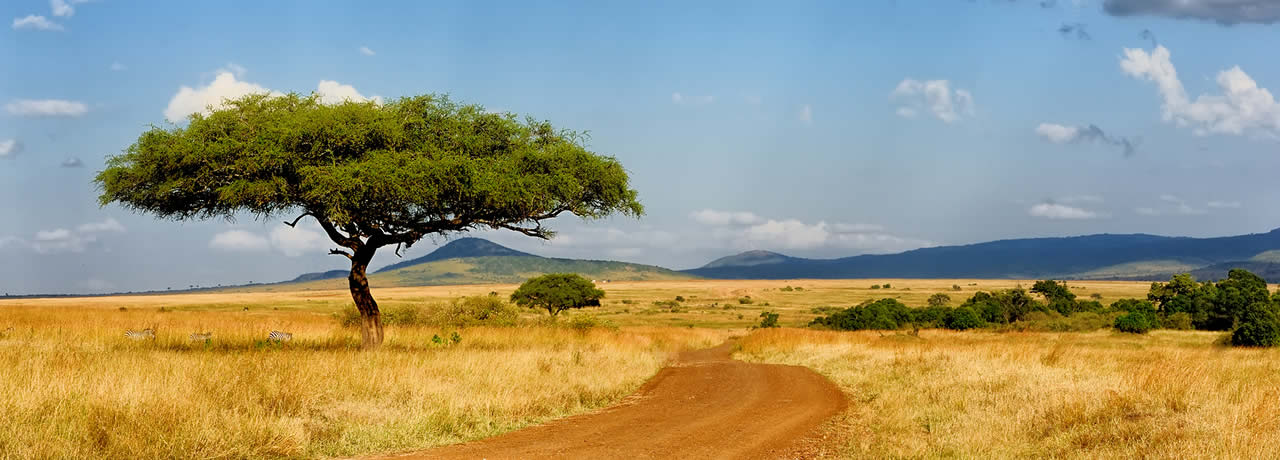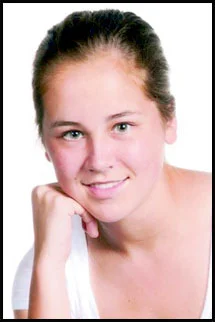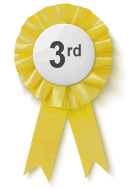
2011 INTERNATIONAL YOUNG ECO-HERO AWARD WINNERS
Meet the 2011 Eco-Hero Award Winners, Young Environmental Activists Leading Innovative Solutions to Global Challenges
With great pleasure Action For Nature announces its 2011 International Young Eco-Hero Awards, which recognize young people 8 to 16 years old for their environmental achievements. We hope the accomplishments of these outstanding young people will inspire many others to preserve and protect the Earth upon which all life depends.
Winners are divided into two groups, age 8-13 and 14-16.
Age Group 8 - 13
First Place
Brooklyn
Age 8
Powder Springs, Georgia, USA
Persuading others to stop littering
Brooklyn Wright, age 8, calls herself Earth Saver Girl and uses entertainment as a tool to achieve her mission of spreading the word about preventing litter and going green. She wrote an entertaining story book, The Adventures of Earth Saver Girl, which was illustrated and published.
Brooklyn gives programs in schools where she reads a portion of her book and then asks trivia questions, answers questions, and hands out books, stickers, activity pages, and more. At community events she gives presentations, leads youth and adults in interactive games and skits, and leads litter pickup activities. The Atlanta Police Chief has endorsed her program and made a video pledging he will not be a litterbug. On the web site her mother helped create, www.earthsavergirl.com, she has entertaining stories and lists events.
In the future, Brooklyn plans to continue what she has started and will publish another book, Earth Saver Girl and the Pooper Scooper, and continue to give fun presentations to encourage others to not litter.
FIRST PLACE
Avalon
Age 10
Wesley Chapel, Florida, USA
Advocating for frogs and clean water
Avalon became a frog enthusiast in the summer of 2010, giving presentations about frogs as an indicator species and helping identify frog calls. She even won two frog call contests! As a way to answer all of the questions she started getting in letters from other kids, she decided to make informative nature videos about frogs and other wildlife, which are available on her website.
Avalon is also interested in making clean water more accessible around the world. “It is important for all life on the planet to share space and have safe homes, water and food.” She won a logo design contest for Friendly Water for the World, which makes low-cost biosand water filters which are used in rural Africa and India. Avalon’s logo is now on the water filters. She decided to work to raise money for this organization, so she started a micro business by running a booth at festivals to sell her artwork (magnets, key chains and necklaces) to raise money for FriendlyWater for the World and other environmental nonprofits.
Avalon continues to be an environmental leader by giving presentations and raising money for environmental causes and has spread awareness about conservation issues to thousands of people.
SECOND PLACE
Guru
Age 9
India
"Rethink, Reduce, Reuse and Recycle"
Guru has found his life’s passion in the cause to reduce global warming and is taking great strides towards this goal.
Using spoken presentations and his handmade visual supplements translated into both English and the local language of Tamil, Guru actively spreads knowledge about the “reasons and effects of global warming and the simple solutions to reduce it.”
Guru has been a calling voice for tree planting and to this day has been able to donate 5,000 saplings to the public, and inspired school children to join his efforts to spread awareness in their areas.
Guru’s mantra is: “Rethink, Reduce, Reuse and Recycle,” Seeing no end in sight for the work Guru has embarked upon, he hopes to donate an additional five thousand saplings within the next three years. Also, bringing his home village to a “plastic free” status is on his to-do list.
Second Place
Mark
Age 9
Springfield, Virginia, USA
Helping oil-soaked wildlife
Mark visited Alabama during the summer of 2010 and witnessed first-hand the effects of a huge BP oil spill. He saw pelicans, other wildlife, and the beaches covered with oil. He was determined to do something.
So he and his younger sister (age 6) immediately took action to help. They set up a lemonade stand and raised over $18,000 to help save pelicans. Through the publicity they received, they encouraged a lot of others to get involved.
On radio and TV stations like MSNBC, Mark promoted their lemonade stand. He participated in the Larry King Live Telethon for the Gulf by hosting LemonAid for the Gulf in New Orleans, and was interviewed live by TV news reporter Anderson Cooper. He started a website called LemonAidforthegulf.com which also helped spread the word.
“Although the crisis in the Gulf is over, the effect on the wildlife won’t be known for a very long time,” laments Mark. Although his family relocated from New Orleans to Springfield, Virginia, he hopes to go back to Louisiana to continue helping out.
www.Lemonaidforthegulf.com
Second Place
Casey
Age 13
Winterville, North Carolina, USA
Fundraising for sea turtles
Since she was five, Casey has loved sea turtles. She believes “one person can make a difference,” and today, after her hard work and perseverance, she knows this is true. It all began when she visited a sea turtle hospital, adopted a sea turtle (“Briggy”), and tracked its progress and eventual return to the ocean. Since that time she has spread awareness and fundraised to protect sea turtles and to inspire others to take an active role.
Casey created an awareness program for endangered sea turtles called Help Them L.A.S.T. (Love A Sea Turtle), that aims to show people how “our actions on land create reactions in the ocean.”
Casey runs a plethora of fundraising events, which includes selling thousands of turtle-shaped sugar cookies which she bakes herself, selling “Sea Turtle” coffee that she helped to create, along with tee-shirts and fresh lemonade. Through all of her fundraising work, Casey has raised over $20,000.
For several years, she has participated in the Junior Internship Program at the Karen Beasley Sea Turtle Rescue and Rehabilitation Center. Through the Boys and Girls Club, Casey helped set up a math and science-based aquatic camp which she hopes to expand.
Casey is actively exploring more fundraising ideas to work towards her goal of educating others about sea turtles.
Third Place
Claire
Age 10
San Francisco, California, USA
Researching water runoff from soccer fields
As a young soccer player, Claire became very aware of the surface of playing fields. She overheard a lot of argument among adults about whether turf fields made of plastic were unhealthy for kids and she wondered what was in the runoff water that she stepped in when she played soccer. Upon being successful in a National Science Foundation Kids Science Challenge, she was paired with a local university professor who trained her to do water sampling. Over six months, she tested more than one hundred water samples from both synthetic turf and grass fields.
Claire’s research showed that most of San Francisco’s turf field runoff water contained dangerous levels of heavy metals and other toxics which were in excess of state and federal guidelines. This is believed to be the first study of its kind. Nobody had any idea of what kind of water kids were stepping in on playing fields. Not only is this water potentially hazardous to kids, but because the playing fields are near the ocean, the runoff water could also be very dangerous to marine wildlife.
When her research project ended, she continued to search for new facts, wrote a blog and talked with people she came across who were interested in these issues. She has spoken at her school, with city officials and presented at the American Geophysical Union, one of the largest gatherings of scientists in the world. She has also been interviewed on TV, in EARTH Magazine, Scholastic/Weekly Reader “SuperScience,” and “Pulse of the Planet.”
HONORABLE MENTION
Enzo
Age 10
Georgetown, Texas, USA
Teaching others about Nature
At age seven, Enzo had the idea to make a show to let kids know that science and nature were really cool. His passion for the earth and all things scientific led to the creation of Exploration Nation, a video series and curriculum for elementary students. With the support of NASA, The University of Texas, U.S. Fish and Wildlife, and many other organizations, he makes educational videos called Enzoology and posts them on his website: www.enzoology.com.
He has been featured on the Ellen Degeneres show and even had the opportunity to have his own show but decided that turning his show into video based lesson plans was better suited to reaching and teaching kids. Exploration Nation is used by an increasing number of Texas school districts and has been seen by millions of kids on-line, runs in 165 markets on television, and has also been featured on many news programs, innumerable blogs and publications. Enzo’s program is also distributed by Learn360.com a digital learning company that streams video and lesson programs to schools throughout the nation.
“My goal is to reach 30 million kids with the message that science is one huge, cool adventure. I hope that thousands of those kids end up having a career in conservation science and that ultimately, one of those kids will someday change the world for the better.”
HONORABLE MENTION
Willy
Age 11
Waverly, Pennsylvania, USA
Spreading awareness about whales
When Willy was seven, he got to look a whale directly in the eye on a whale watch trip and has felt deeply connected to these wonderful creatures ever since. He wants to make sure they are protected from human activities such as littering and hunting.
Willy wrote a letter to President Bush protesting the use of underwater sonar signals. He influenced the curriculum of his first grade class and got his classmates involved by making origami whales to inspire other kids to help protect them.
Because of Willy’s growing knowledge of whales, he was asked to be the whale intern on a whale watch boat where he explained and answered whale questions from passengers. He wrote a column in the newsletter for Blue Ocean Society for Marine Conservation and later entered this into a school writing contest and won first place. He also volunteered at the University of New Hampshire’s “Know the Coast Day” where he informed the public of the plight of whales and ways to help.
Willy has been featured in many newspaper articles and his passionate commitment to whales has inspired countless people to care about protecting the oceans as well.
Age Group 14 - 16
FIRST PLACE
Roshan
Age 15
Kathmandu, Nepal
Global warming - collecting signatures
Roshan wanted people in Nepal to become aware of issues related to global warming, so he created a club called JSA (Junior Social Awareness) that worked to obtain climate change petition signatures. Roshan led a number of promotional campaigns that hosted guests like the Prime Minister, the Chief District Officer, and the Minister of the Environment of Nepal. The President of Nepal commenced his Nationwide Signature Campaign. Roshan approached many government officials and traveled all over Nepal to promote his campaign and hold press conferences.
He found 75 student district representatives to collect signatures from their respective districts and trained them in collecting signatures. He also reached out to thousands of students and showed them how important global climate change is.
“I have been inspired to have greater ambitions for organizing even programs of greater magnitude in the upcoming days in the field of Climate Change and other environmental issues,” says Roshan. In the future, he plans on starting a tree-planting program to mobilize youth to take action against global climate change.
FIRST Place
Charles
Age 15
Dacula, Georgia, USA
Environmental movement leadership
Believing that people, if they know about the issues facing them today, would not treat our environment so poorly, Charles set out to spread the word and change people’s interactions with nature.
He leads a group called Greening Forward that advocates for the environment on the web and throughout his community. He also started a youth club called Earth Savers that creates recycling campaigns, organizes pep-rallies and skits, plants gardens, and produces a newsletter.
Charles was interviewed by local news stations and writes a column for a local newspaper. He influenced his school curriculum and made a guide to help other people to become environmental leaders. He also helps local businesses and non-profits become greener.
Throughout his work, he has raised over $122,000 for Greening Forward and Earth Force. He plans to be committed to preserving the environment for the rest of his life and is always taking on new projects.
FIRST PLACE
Rujul
Age 16
Plainsboro, New Jersey, USA
Clean drinking water for Indian villages
When Rujul visited a rural Indian village called Paras with his family in 2007 he was astonished by what the people had to go through to get water. There was a huge disparity between the villagers’ access to clean water and his own. This inspired him to take action immediately. He began raising money to help this village get access to clean water.
After a year, he had raised enough money to go back to Paras and build a tube-well. “I saw the smiles break out on the villagers’ faces. The entire village cheered. I could see how much they needed this well, how much they needed something as simple as clean water.”
And Rujul didn’t stop there. With a friend, he started a non-profit called Drinking Water for India to bring clean water to other villages in India through involving schools in the USA. Driven by the fundamental belief that clean water is a basic right, his organization has built 31 wells with three more on the way, helping over 55,000 people. In order to keep their mission sustainable (as groundwater sources are dwindling) they have also begun educating villagers about harvesting rainwater. They have constructed 10 catchments and brought 23 other U.S. schools in to help with their cause.
“For many, life is simply a struggle for survival. Yet, I have noticed that even the poorest of the poor are happy – they are happy for what they have. Every day, I try to keep in mind how lucky I really am.”
SECOND PLACE
James
Age 14
London, Canada
Protecting endangered apes
At age 8, James started protecting apes after learning about the dangers they and their habitats face. At first he raised money in any way he could (such as asking for donations instead of birthday presents) which he donated to help protect apes, their habitats, and the people living in their locations.
Then he started a project called 1,000 classrooms to spread his inspiration to other kids and raise money for his cause. The idea is to get a $3 donation from 1,000 classes in Canada (no student donates more than $.25). The money is used to buy eggs from widows of park rangers in the Congo in West Africa and give them to local school children who can’t afford enough food. This provides income for the widows and sustenance for the children. So far he has raised $6,000 for this project. By supporting the people living near the endangered apes, protection of the apes and their habitat is strengthened.
“When I began the project I was in speech therapy for a speech impediment which made it difficult for people to understand me. However, although it was difficult I knew that the gorillas couldn’t speak for themselves and if I didn’t, then who would? So I became a public speaker and have improved how I talk and how I relate to others.”
James has given many speeches, and plans to have a long-term commitment to confronting environmental issues by studying primatology and ecology in college so that he can help protect our planet’s vulnerable ecosystems.
Second Place
Clifford
Age 16
Ghana
Tree planting and youth action
Clifford leads an environmental protection group called Kubiti Afforestation and Farming Society. He has reduced deforestation and contributed to reforestation through planting over 30,000 teak trees with the help of the 250 youth that he has inspired to become involved in conservation work with him. He helped establish a nursery that raised thousands of seedlings to plant and sell to local farmers.
His interest in planting trees was sparked after attending a workshop organized by the Forestry Department. He decided to set out to restore the depleted local forest in order to serve as a windbreak, control erosion and watershed, and to make wood more affordable for community members.
Clifford is taking courses in environmentalism with the goal of creating an environmental organization and continuing to better his local eco-system and community.
THIRD PLACE
Victoria
Age 16
Ridgewood, New Jersey, USA
Saving electricity - small steps make a big difference
Victoria has always been conscious of her own energy consumption and wanted to motivate others by starting with small steps. “When everybody does the same thing together,” she says, “you can have a big impact.”
First she tackled the overuse of lights in her school by organizing other students to turn off the lights for the three hours between the time students left and the janitors arrived. The Turn Off the Lights project was successful in saving electricity and thousands of dollars in energy costs for her school. Also, as a result of her campaign the school district installed motion- sensor lights.
Victoria then started a larger initiative called Students Saving Energy that helped other schools in switching to more energy efficient practices. She launched a Sustainability Pledge Campaign that helped schools set goals to reduce energy consumption and create a foundation for starting their own initiatives. She aims to have 100 pledges by the end of 2011.
“I learned that in order to push for change, you have to start small. It’s overlooking the big picture and striving for the little goals that will have a lasting effect.”
THIRD PLACE
Ariel
Age 16
Atlanta, Georgia, USA
Started a kosher environmental group
Kosher Crew, founded by Ariel, motivates Jewish teens to become active conservationists by taking part in tikkun olam, or “healing the world.” He runs fun, peer-led outings to do hands-on environmental work in order to motivate participants to be active and healthy and make a positive impact on the environment, while encompassing core values of Judaism. He wanted to do something for Jewish youth because so many environmental events are on Saturdays, which is their day of worship, and they are unable to attend.
He’s organized many projects to start and support community-based agriculture in order to improve the mental and physical health of the community, provide opportunities to compost, and improve air and water quality.
He’s also fostered meaningful partnerships with other local organizations in order to build bridges between community leaders.
Ariel has led trips to clear invasive species, pick up litter, and create the space for a butterfly garden.
“I will always turn to nature for inspiration and solace and always plan on being involved in conservation projects.”
Third Place
Anup
Age 15
Pokhura, Nepal
Planting sacred trees to protect the environment
When considering that the issue of global warming/climate change theory contains complex or scientific terminology, Anup started to realize that people may not understand. In fact, even his own family did not seem to understand. So he began to think about how environmental issues are communicated in Nepal. People are much more likely, he thought, to relate to religious, spiritual, or traditional language which could be used to convey climate change information in a more productive way.
Anup decided, as a tool to explain global warming, to use the Peepal tree (Ficus Religiosa) which is a sacred tree to the people of Nepal connected with the incarnation of the God Vishnu according to the Hindu religion. This tree also has important environmental value. Believing that people who do not understand the ecological importance of the tree could understand its importance in spiritual terms, Anup decided to promote the planting and preservation of this tree as a way to help stop global climate change and encouraged others to do the same. Anup began to collaborate with the Bandobasta organization to implement his ideas. He used his artwork and photography to enlist students to participate in the program and to teach youth in a practical way. At first the rural people he visited did not want to give up their land for the trees to be planted, but when they realized the spiritual significance of the tree as well as its ecological value, they agreed.
Through his efforts, which have resulted in the planting of many Peepal trees, Anup has “realized the importance of team work and organization to get success.” His project has been used as a model in other parts of Nepal.
HONORABLE MENTION
Elizabeth
Age 15
Virginia, USA
Reducing shower water usage
Elizabeth learned that if you reduce your shower time by only one minute, it could save more than 1,000 gallons of water every year. What if everyone were to cut their shower time by this amount? This concept was what motivated Elizabeth to create a device called the Water Watcher that attaches to showerheads and faucets. It flashes a red light and beeps after a gallon of water has been used to make people aware of how much water they really use in their daily lives.
Elizabeth entered competitions to publicize her invention. She eventually got her idea made into a real prototype by a local engineer and was asked to present this prototype on a TV show in Canada called “Think Big,” which is about kid inventors. Elizabeth hopes that this show made people more conscientious about their water use.
She plans on continuing to develop her Water Watcher and to present it to faucet companies to get it manufactured so that millions of gallons of water can be saved.
HONORABLE MENTION
Adi and Katherine
Ages 15 & 14
Homer, Alaska, USA
Taking a leadership role in waste reduction and recycling
When Adi and Katherine learned that their local landfill would be full in 2011 and was being turned it into a transfer station, they sprang into action and have become recycling leaders in their community. They founded an organization called EcoLogical that reduced their school’s waste by half.
With the help of their friends, they started a recycling program at their school and eradicated Styrofoam lunch trays, replacing them with reusable plastic trays. They introduced a tin-recycling program to the transfer station, are working on starting a community compost site, and hope to bring solar or wind energy to their school.
To raise awareness about re-using materials that might otherwise be dumped into the trash, they run an annual Recycling Fashion Show that incorporates recycling facts as models walk the runway in costumes made of re-used materials. They also presented at a Kenai Peninsula meeting and pushed for funding by the borough assembly for the addition of recycling on the spit, which is an additional location in the community of Homer.
Through their energetic and creative work, Adi and Katherine have been met with hard-earned success. Says Adi: “I believe the main thing this project has taught is as long as I strive for it, I can make change in my community.”






















